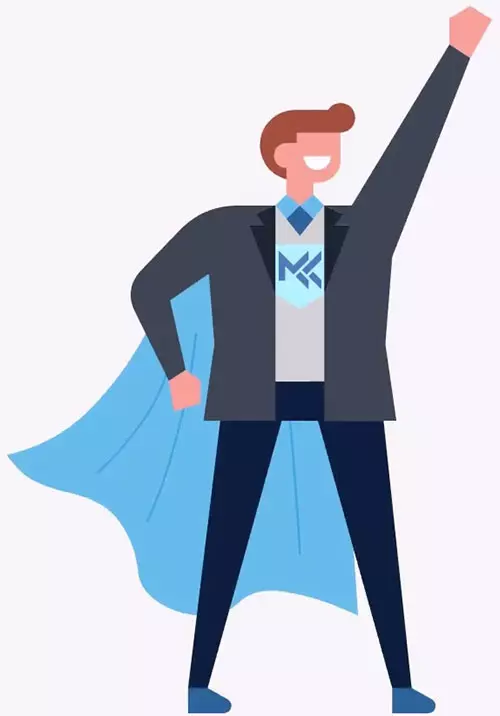WHAT IS THE OBJECTIVE OF THE FIT INTERVIEW?
The fit or personal experience interview is usually the first part of typical consulting interview and lasts anywhere between 15 and 30 minutes. The main objective of a fit interview is assessing whether the candidate has the leadership traits and the motivation that can make him succeed.
There are two main areas you’ll be tested on in your fit interview:
- Leadership, impact and teamwork: You'll be asked to talk about a specific experience that reflects how you demonstrate a particular trait particularly relevant for consultants, like leadership. The story could either start from your resume, like “How did you manage to convince sponsors to provide a 500$ funding for your Club?” or be an open ended question, like “Tell me about a time when you….”.
- Motivation to be a consultant in that specific firm: Typical questions include “Why Consulting?” or “Why Firm XYZ and not a competitor?”.
HOW IMPORTANT IS THE FIT INTERVIEW IN MY ASSESSMENT?
Your fit interview plays a crucial role in the finial hiring decision. In most companies the fit or personal impact assessment gets roughly equal weight as the case interview. There is no “average” between case and fit interviews: if you fail either of the two you will not get a "pass" to a 2nd round interview or job offer.
The fit interview is usually the most overlooked step in the consulting interview process. Candidates tend naturally to think that it’s just about the case interview, but this is simply wrong. At the same time, the importance of the fit interview is also a good news, because it is the most predictable part of the consulting interview and good preparation will inevitably lead to success.
WHAT SHOULD I FOCUS ON IN MY LEADERSHIP, IMPACT AND TEAMWORK STORIES?
According to common wisdom and firms’ publicly available information, four key areas are usually regarded as crucial in a fit interview:
- Leadership
- Teamwork
- Impact
- Achievement
However three more traits essential for working in consulting are receiving more and more attention:
- Ability to learn from mistakes
- Persuasion skills
- Conflict handling skills
HOW SHOULD I TELL THE STORIES?
While in the Motivation part you’ll be requested to share reasons for your decision to apply to that specific firm, in the leadership, impact and teamwork part you’ll be asked to share specific stories
STAR is a commonly suggested approach for telling interview stories. Follow the below steps:
- SITUATION: quickly explain the setting
- TASK: describe your role and what you were supposed to do
- ACTION YOU TOOK: describe what you did to go the extra mile
- RESULTS: outline how your action had an impact on the initial situation
How to use STAR:
- Give an overview of the Situation and focus more on Task, Action and Result, outlining how you made a difference
- Be structured, organized and to the point
- Be specific: explain the specific problem you faced and the steps you took, focusing on the behavioural/impact side
- Try to keep your initial overview succinct: take out adjectives (much, very, incredible, huge…) and adverbs
- Do not be technical: focus on why the issue was important, not on technical details about the situation
After you tell a story, expect interviewers to drill down quite a bit asking you for other people’s reactions, team dynamics, conflicts. You need to explain every single step in a specific situation, and even more importantly, the rationale behind your decisions in all steps.
HOW SHOULD I PREPARE?
It is absolutely crucial for you to prepare at least 3 stories for each area, so that in case you get the same question by multiple interviewers you are not telling the same story. Do write down bullet points for each story and try going through them on your own or with a case interview partner.
For the case interview more than for anything else it is essential for you to practice with an experienced consultant, who will help you craft and deliver your message in the typical consulting way. Consultants usually have their very own way of telling stories and expressing points of view: training with an experienced consultant will help you tailor your communication and ensure your skills and motivation get across.
